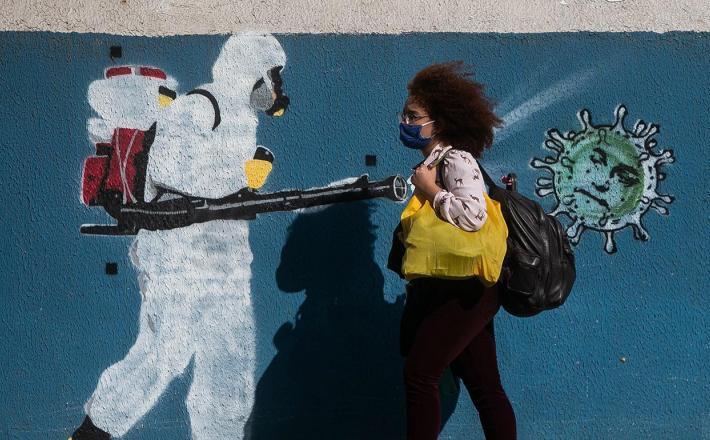How the Coronavirus risks exacerbating women’s political exclusion
Source: Carnegie Endowment
Women participating in politics have navigated unique challenges and opportunities from the coronavirus pandemic. Governments around the world should take these steps to safeguard women’s political inclusion during the pandemic and beyond.
The coronavirus pandemic continues to disrupt political processes around the world. Seventy-three elections have been postponed. Many parliaments have suspended or limited their activities, and over a hundred countries have restricted citizens’ freedom of assembly and expression in the name of public health. Authoritarian and authoritarian-leaning leaders have further taken advantage of the emergency to concentrate power in the executive branch.
Few analyses have probed the gendered consequences of these trends. In the media, the main narrative about gender and pandemic politics has centered on the perceived effectiveness of female politicians in responding to the crisis—including Chancellor Angela Merkel in Germany and Prime Minister Jacinda Ardern in New Zealand. Yet these positive headlines conceal a more worrisome global picture: the pandemic’s profound political and socioeconomic effects could halt or reverse advances in women’s political inclusion.
Click here to read the full article published by Carnegie Endowment on 17 November 2020.

Women participating in politics have navigated unique challenges and opportunities from the coronavirus pandemic. Governments around the world should take these steps to safeguard women’s political inclusion during the pandemic and beyond.
The coronavirus pandemic continues to disrupt political processes around the world. Seventy-three elections have been postponed. Many parliaments have suspended or limited their activities, and over a hundred countries have restricted citizens’ freedom of assembly and expression in the name of public health. Authoritarian and authoritarian-leaning leaders have further taken advantage of the emergency to concentrate power in the executive branch.
Few analyses have probed the gendered consequences of these trends. In the media, the main narrative about gender and pandemic politics has centered on the perceived effectiveness of female politicians in responding to the crisis—including Chancellor Angela Merkel in Germany and Prime Minister Jacinda Ardern in New Zealand. Yet these positive headlines conceal a more worrisome global picture: the pandemic’s profound political and socioeconomic effects could halt or reverse advances in women’s political inclusion.
Click here to read the full article published by Carnegie Endowment on 17 November 2020.